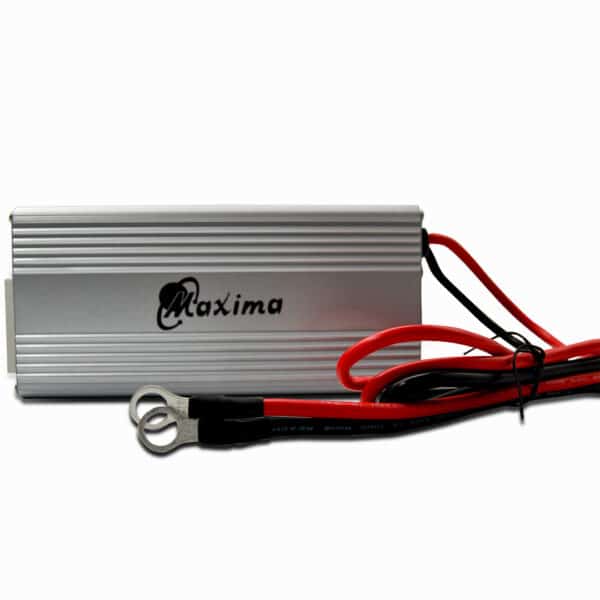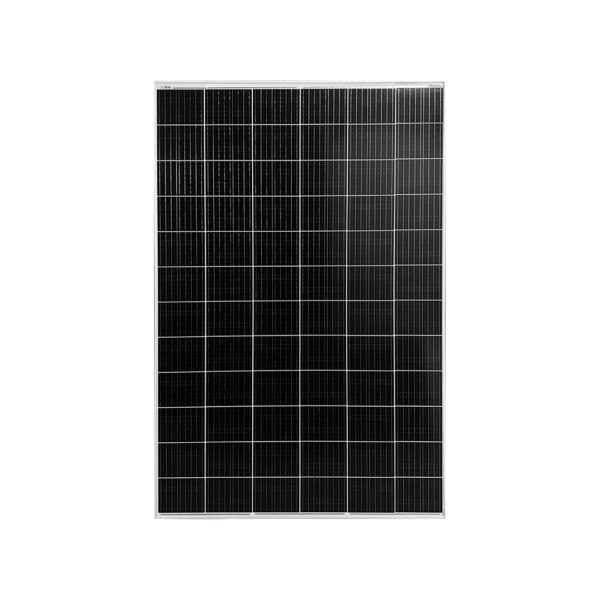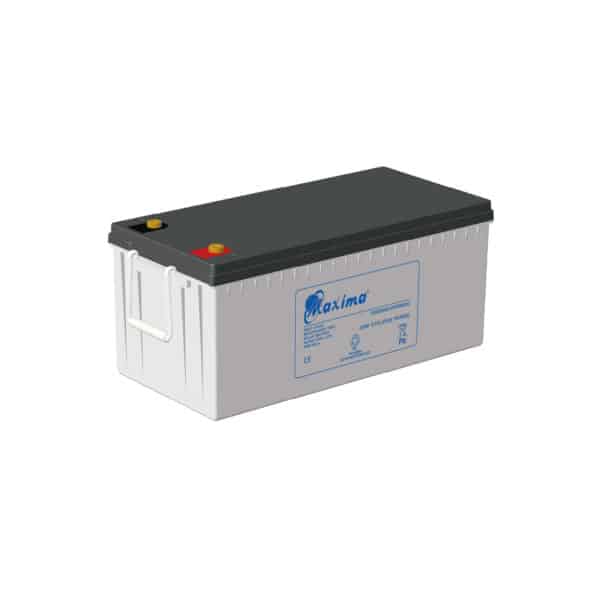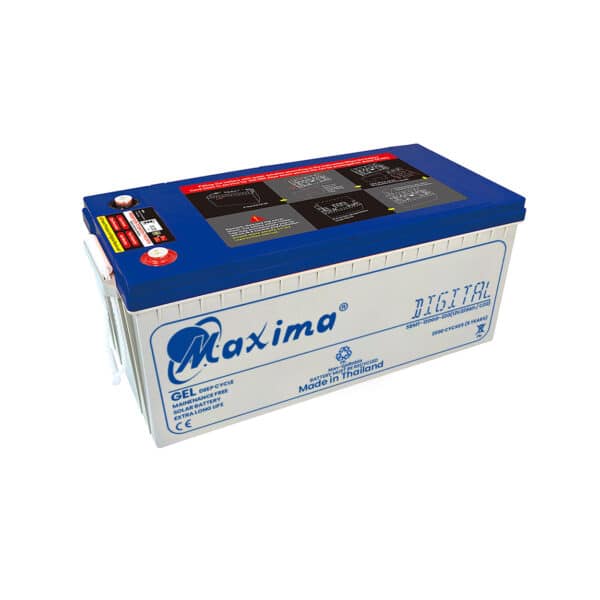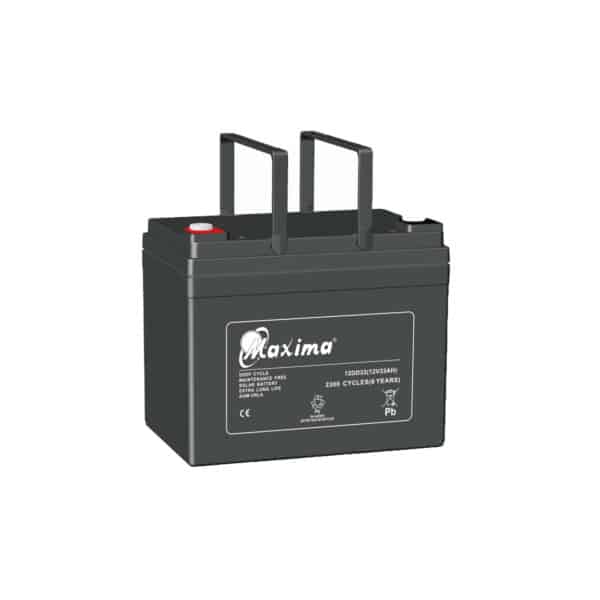Introduction
The weakest link in any off-grid solar system is the battery bank. Lead Acid batteries inherent problems of low cycle life, sensitivity to temperatures and limitation on discharge/charge rates are overcome by these batteries. LiFePO4 batteries outperform all their rivals in almost all areas. Albeit its costs, the cost per KWhr of storage remains extremely attractive in LiFePO4 type than any other type of battery.
General Description
MAXIMA LiFePO4 uses best-in-class cells and other raw materials to bring to you the most advanced type of energy storage solution. Due to the high quality of raw materials, Maxima Lithium batteries (LiFePO4) offer more than 20 years of service life with a utilization or discharge rate of up to 80%.
Better Cost Per KWhr Of Storage
While LiFePO4 batteries are costlier than Lead Acid batteries, they offer 10 times longer life. The average cost of Lithium batteries is 3x higher. Therefore, at 3X higher price, one is getting 10x more benefit. All in all, the cost per KWhr stored is about 20~30% of Lead-Acid Batteries.
Other Technical Considerations
-
- LiFePO4 batteries perform significantly better in higher temperatures. The performance of Lithium batteries remains better than Lead Acid batteries even at temperatures exceeding 60C.
- Maxima batteries’ built-in Battery Management System power electronics assures all the cells within the batteries are charged equally irrespective of the charge/discharge current. This active balancing is one of the major factors for PYLONTECH LiFePO4 batteries to outperform other lithium batteries. Moreover, the BMS allows for easy paralleling of several of these modules without concerns of internal string current mismatch that are prevalent in Lead Acid batteries.
- The weight of LiFePO4 batteries is almost 60% lower as compared to Lead-acid batteries. These batteries are more leakproof and are maintenance-free.
- Finally, LiFePO4 Maxima batteries are ECO-FRIENDLY. Lead inside the batteries is a heavy metal that has potential health risks to humans and vegetation. The lead can seep into the water table and can end up in water that is consumed by humans and animals. LiFePO4 uses low levels of these harmful chemicals.
| Weight | 19.6 kg |
|---|---|
| Dimensions | 522 × 240 × 222 mm |



